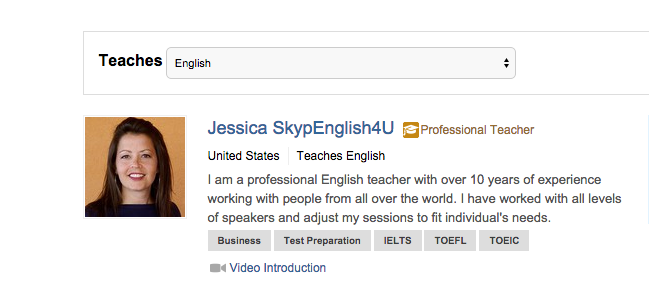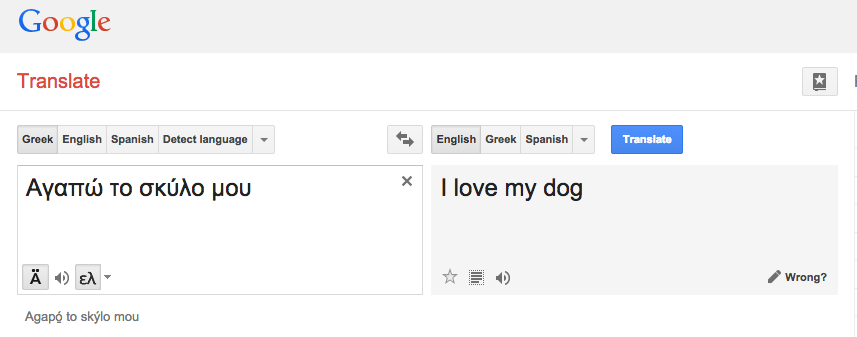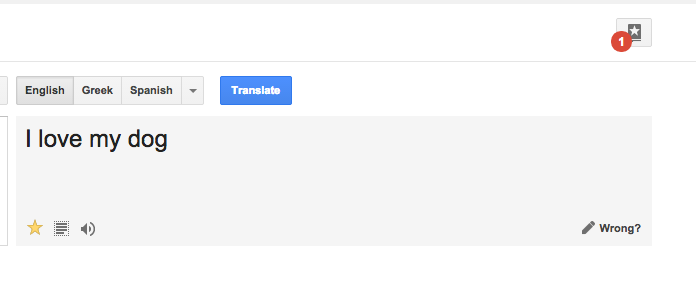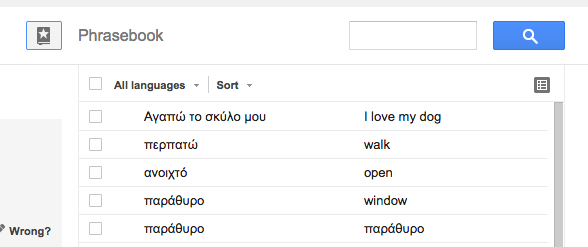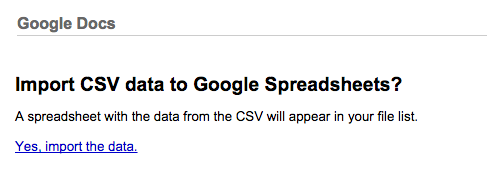IELTS Practice Sessions on Skype
I have helped many students successfully achieve the score they needed on the IELTS (International English Language Testing System) exam.
Students take the exam for different reasons. Many of the students I have worked with needed it as part of their visa application process because they wanted to relocate to Canada or Australia. The other large percentage of students were taking it as part of the entrance requirement for a university program which would be taught in English. Some students were asked by international companies to take the exam so the company could see exactly what level of English they had. Lastly, some students just take it for themselves. They want a goal to work towards and decide to take an exam to push themselves and for some, force themselves to study because they know that exam is coming up.
SkypEnglish4U IELTS Sessions
Many students purchase IELTS books and use the endless resources on the internet to help them prepare for the exam. That is great, and I definitely recommend reading anything you can about the exam, but that method doesn’t include speaking practice. You can read all about the speaking section, possible question topics and example answers, but that is all passive learning. If you really want to be ready for the speaking portion of the exam, you need to actually practice speaking. Speaking by yourself in the mirror is a great way to get comfortable for the speaking section, but the mirror doesn’t make corrections and give you feedback.
During my IELTS practice sessions on Skype, speaking and writing are the two parts of the exam that are most efficiently practiced online. As with all of my sessions, the student decides our path and what they want to focus on. For example, some may only want to focus on IELTS speaking part 2, while others want to focus on improving their writing and then fill the remaining time with speaking practice. Each student is different, so I make sure that they are getting exactly what they need.

IELTS Speaking
During the speaking portion of the exam, you will have a one-on-one discussion with a certified examiner. The examiner will follow the test format with the 3 different sections, but will adapt their questions based on your answers to be as close to a real-life situation as a test can get. This is why reading about possible test questions is not enough. You really have no idea what they may ask.
During our sessions together we can simulate an exam using actual IELTS questions used in past exams. Part 1 starts with the general questions and topics. For part 2, I will time you and give you suggestions on how to use the time wisely. Finally, we’ll practice the part 3 follow up/conversational questions. While we go over the different topics, I will make notes in the Skype chat box with vocabulary and grammar corrections and suggestions for you to see as we are speaking and also to review later on.
The speaking section is usually the part that students get the lowest score on because they don’t have experience with actual speaking. Speaking out loud in English about anything will help you with this exam. Opening your mouth is the first step. I have worked with students who have never spoken English before our first session, but studied every IELTS book out there. On the exam day, that knowledge that you learned from the book is not going to come out of your mouth all by itself. You must practice using what you have learned.
IELTS Writing
Whether you are taking the General IELTS or Academic IELTS, both require two different types of writing activities. If IELTS writing is something that you are interested in practicing, I will send you the topic before our session and you write it on your own time and then we review it together using Google Documents (if you can not access this in your country, there are other ways to do it).
Over the years, I have really noticed quick improvement from many students from using this ‘reviewing/editing together’ process. With Google Documents, we both see the edits and changes, so it is an active learning process. If you just send someone your document and they correct it on their own, YOU are not a part of the reviewing process. It is much better to be actively involved and be able to discuss the changes and ask questions.
Writing is an active process. You are using your knowledge to create something. Many students don’t practice this section of the exam enough. They think that because they can read well and understand most things, that then they can write well. Another common mistake that students make is to not practice writing with the time you are allowed during the test. I suggest that students start to practice writing with no time limit and once they start to feel comfortable with the essay format, start to keep track of the time.
IELTS is an exam which was designed to test your level of English. Everything that you read, speak, write or hear in English is going to help you prepare for the IELTS exam.
Be Prepared
Because the examiner is a human, there is no knowing what questions they are going to ask. You need to be ready to speak about anything and everything (not just the practice questions from the IELTS prep books).
Taking a test is stressful all on it’s own. Taking a test in a foreign language takes it to a whole other level. Put your mind at ease and invest some time in practicing for the exam with me online and feel more comfortable with your level when you walk into the exam.



